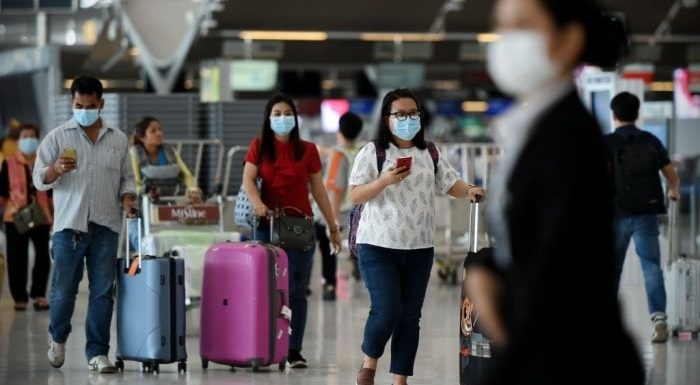
Almost two years into the global pandemic, vaccines were created in record time that played a significant role in preventing the spread of COVID-19. With the number of vaccinated individuals daily, there has been ease of restrictions and travel requirements in various countries.
Accordingly, many people are eager to resume activities, such as meeting with friends, going out shopping, and possibly spending the holidays abroad. In the United Kingdom, the government have already lifted the quarantine rules for travellers who are fully inoculated against the virus.
This was announced by UK Transport secretary Grant Shapps. A person is declared as fully vaccinated after 14 days since receiving their final dose. Included in the change of quarantine rules are UK residents who were vaccinated before returning to England, from the United States, and various European countries.
Furthermore, children accompanied by fully jabbed adults will also be exempt from quarantine even if they are inoculated under Britain’s vaccination rollout.
However, UK expatriates and non-residents who were fully vaccinated abroad are exempted as they still have to self-quarantine. As confirmed by prime minister Boris Johnson, it meant freedom of movement for many holidaymakers, tourists, and business travellers.
This change came into effect last July 19, simultaneous with the government’s plan to remove all other coronavirus restrictions such as social distancing and mandatory wearing of masks. While this benefits all holidaymakers, the UK also aims to resume and promote safe, sustainable, and robust returns to international travel.
As quarantine has been lifted, many might be wondering if vaccinated travellers would still need to be tested. The answer is yes, travellers would still require to take a coronavirus test as said by the Department of Transport.
Testing requirements will apply to travellers from countries under the green and amber list and are required to take pre-departure fit to fly covid test.
What are the different tests for COVID-19?
Since the start of the COVID-19 pandemic, the significance of reliable and accessible testing to screen for the virus has become increasingly apparent. Such tests can be divided into diagnostic tests that look for active infection in the mucus or saliva, and blood tests that hunt for antibodies, proving that an individual has been infected with the disease before.
Under diagnostic test is the Polymerase Chain Reaction (PCR) test and rapid antigen test. The former is considered the golden standard for screening people with an active coronavirus infection or viral RNA, which will be detectable before antibodies form or symptoms of the disease show.
During the PCR testing, the substances known as DNA polymerase or reverse transcriptase are added into the nasopharyngeal sample in a lab. Such substances work to make numerous copies of any viral RNA that are present.
On the other hand, the rapid antigen test is similar to a PCR test designed to pick up an infection rather than antibodies to the disease. It has a quicker turnaround time compared to the PCR test but is less reliable when it comes to the accuracy of the results. It is also quicker to produce.
As such, it is preferred to be used in screening a large number of people like in airports and a Rapid Antigen Test for Travel for those who plan to travel. Antigen testing works the same way as PCR testing as it involves swabbing the back of the nose or throat using a nasopharyngeal swab to collect a sample.
The last test used for COVID-19 is the antibody test or serology test, which looks for antibodies of the virus. Its results do not tell if a person has an active infection, rather it shows if a person is infected by the virus in the past.
To learn more about UK Lifts Quarantine Rules for Vaccinated Travellers, click this infographic below brought to you by Harley Medic International.

